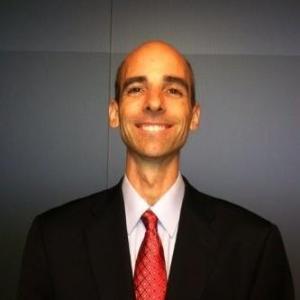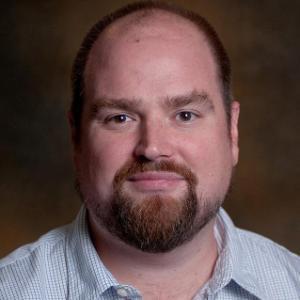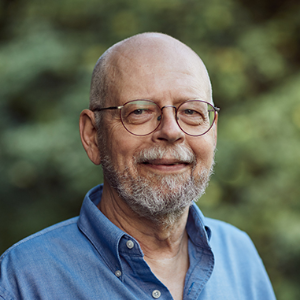Thanks to generous funding from our departmental donors, three visiting scholars gave talks made available to students in Sociology 49 and Sociology 149: Dr. Michael Johnston, Dr. Noah McClain, and Dr. Grant Blank.
Dr. Michael Johnston, Founder, Overcoming Asthma, LLC spoke on: “Generative AI Tools for Facilitating Asthma Recovery.” Dr. Johnsto no n Michael is developing Generative AI solutions that empower people to overcome asthma. He earned a Masters of Public Health in Biostatistics and Ph.D. in Sociology, focusing on quantitative methods and networks. As a health researcher at the UCLA School of Medicine, Dr. Johnston published many articles related to person-centered care for chronic conditions. As a data scientist working in the health insurance industry, Dr. Johnston has specialized in improving the quality of care for people with chronic conditions. He excels in discovering and communicating data-informed stories about improving health. His 15+ years of experience enables him to leverage analytic results to create business value. He delights in forging and nurturing collaborative professional relationships on the journey of identifying, planning, developing, implementing, and leading innovative health analytic solutions. For more information on Dr. Johnston’s related work on sociology of health, see “Acupuncture for Chemotherapy-Associated Cognitive Dysfunction: A Hypothesis-Generating Literature.” From the article: “There is an emerging consensus that between one fifth and one half of breast cancer patients experience chemotherapy-associated cognitive dysfunction. Research shows that patients with cancer are often interested in acupuncture for symptom relief. A clinical question thus arises: What should physicians advise their patients regarding the use of acupuncture to alleviate or ameliorate chemotherapy-associated cognitive dysfunction? The authors review and synthesize 2 bodies of relevant research literature: (1) the developing literature on the etiology and nature of chemotherapy-associated cognitive dysfunction and (2) the literature concerning acupuncture for neurological diseases and psychological issues. There is evidence that acupuncture may be effectively used to manage a range of psychoneurological issues, some of which are similar to those experienced by patients with chemotherapy-associated cognitive dysfunction. The evidence of efficacy is more promising for psychological than neurological conditions. Given evidence of possible efficacy combined with evidence of demonstrated safety, we suggest that physicians should support patient decisions to use acupuncture services for chemotherapy-associated cognitive dysfunction, especially given the lack of proven alternatives.” Other recent publications include Hypertonic Dextrose Stimulates Chondrogenic Cells to Deposit Collagen and Proliferate.
Dr. Noah McClain gave the talk “Police, Unequal Mobilities, and The Digital Media of the ‘Smart’ City.” Noah McClain (PhD, New York University) is a sociologist and Chief Research Officer of Emerald Studies in Media & Communications, where he also serves as Senior Editor for Science and Technology Studies (STS). His interests span the sociologies of cities, law, inequality, complex organizations, work, policing, and security, and how these intersect with technologies high and low. He has been on the faculties of Illinois Tech, SCU, and the Bard Prison Initiative, where he was also a postdoctoral research fellow. He is a former investigator of police misconduct for the City of New York. His work has been featured in The New York Times. For more information on Dr. McClain’s related work on digital sociology, see “Meming the Catch-22: Doing security where the steel wheel hits the rail.” From the article: “While Internet memes are often treated as artifacts which play with broad cultural elements, they can also take on distinctive meanings within narrow communities of practice or organizational membership. This article demonstrates how interrogating a certain interpretation of a meme, and a sort of humor found within it, can reveal elements of viewers’ situated experience. In other words, I argue that when we get a joke, we begin to understand the world. I examine the particular reception of a meme — a parody of a familiar New York City subway security poster — by workers in that subway system, and show how a dark gallows humor they found in the meme draws from problems in their workplace. In turn, the world betrayed by that gallows humor illustrates challenges to organizational efforts and public policy to confront emergencies and crises. Unpacking the humor and even ridicule seen in memes in specific organizational and work settings, this article suggests, can offer shortcuts to reveal overlooked — but vital — perspectives in critical contexts.”
Dr. Grant Blank gave the talk “Finding Stable Social Forms on the Internet: How Smartphone Dependencies Shape Internet Use & Outcomes.” Grant Blank was a Departmental Lecturer at the OII. He was a Survey Research Fellow until August 2020. He received the William F. Ogburn Career Achievement award from the Communication, Information Technology and Media Sociology section of the American Sociological Association in 2015. This award recognizes a sustained body of research that has made an outstanding contribution to the advancement of knowledge in the area of sociology of communication, information technology and media sociology. He was awarded a Teaching Excellence Award from the University of Oxford in 2015. He has been awarded a Visiting Fellowship to the Center for Advanced Internet Studies (CAIS), at the Ruhr University in Bochum, Germany for two months working on a cross-national study of echo chambers in 6 European countries and the United States. The study is unusual in that it looks at possible echo chambers in the context of the entire media environment, including online media, social media, and offline broadcast and print media. The question is, in this kind of high-choice media environment do people limit their political media consumption in such a way that they could find themselves in an echo chamber? He is a sociologist who studies the social and cultural impact of the Internet and new media. He is also interested in cultural sociology, especially reviews and cultural evaluation. Grant began his career as an independent consultant based in Chicago Illinois specializing in research design, statistical analysis, and database design. He previously taught at American University in Washington DC. He completed his PhD in sociology at the University of Chicago in 1999, and joined OII in 2010.


